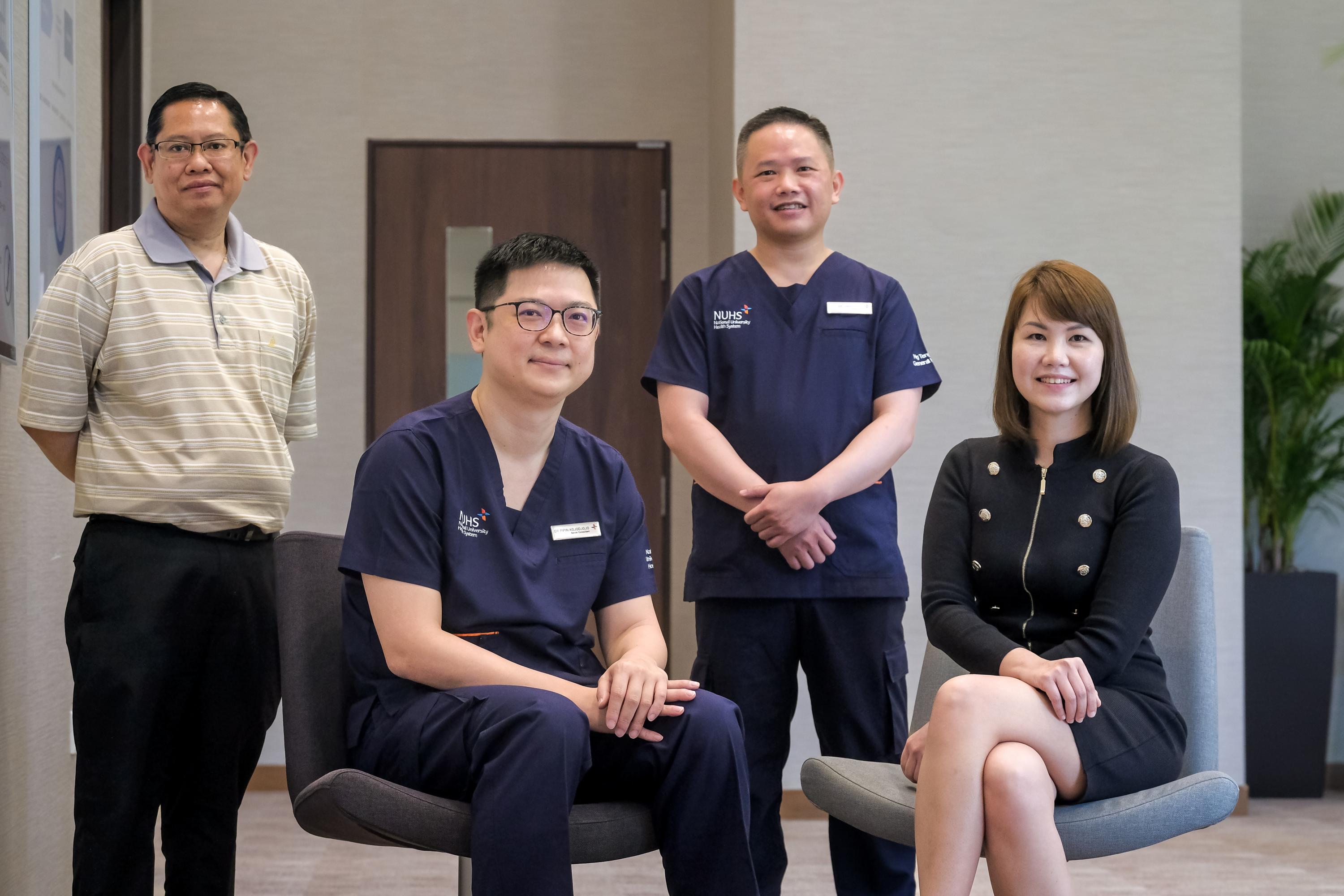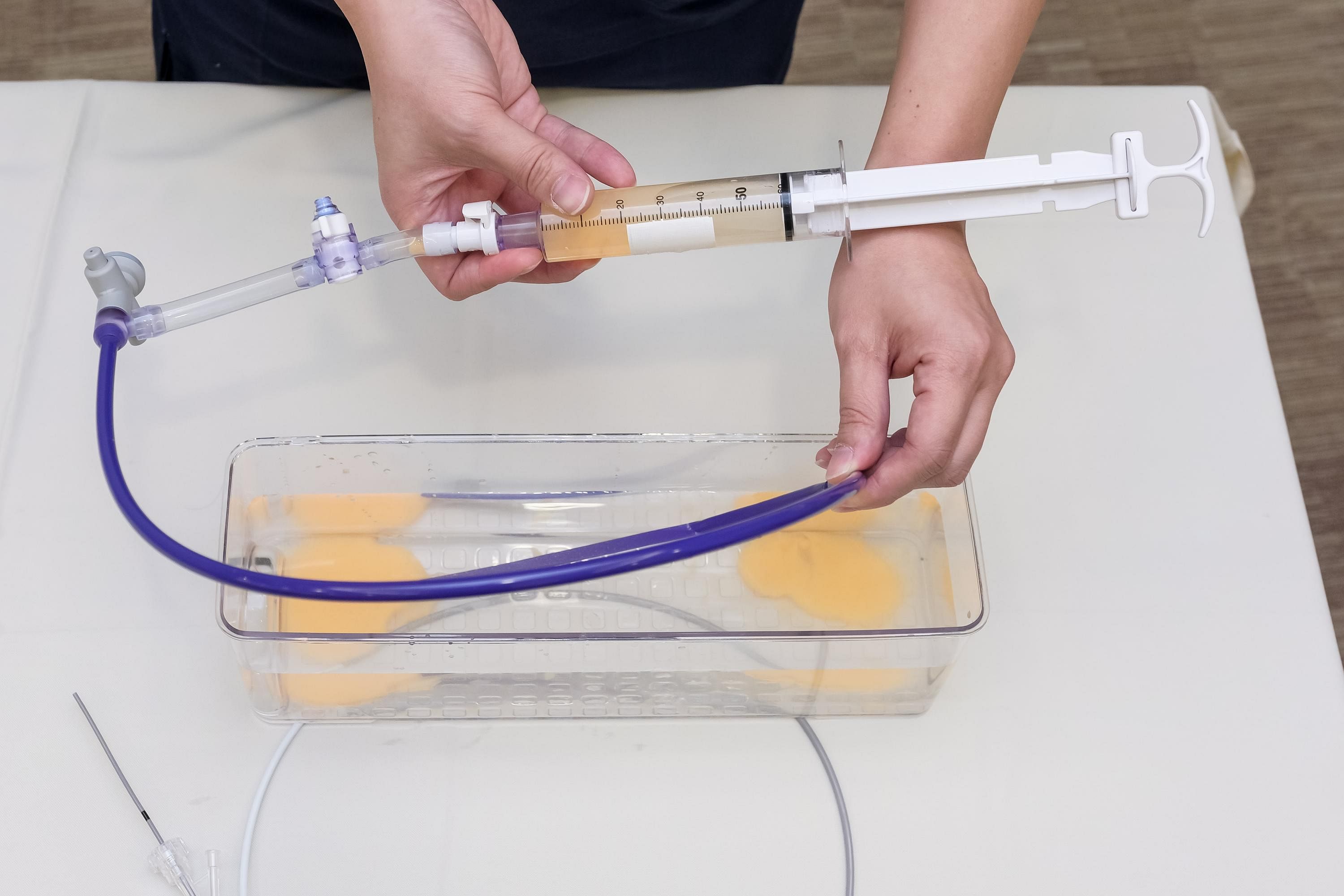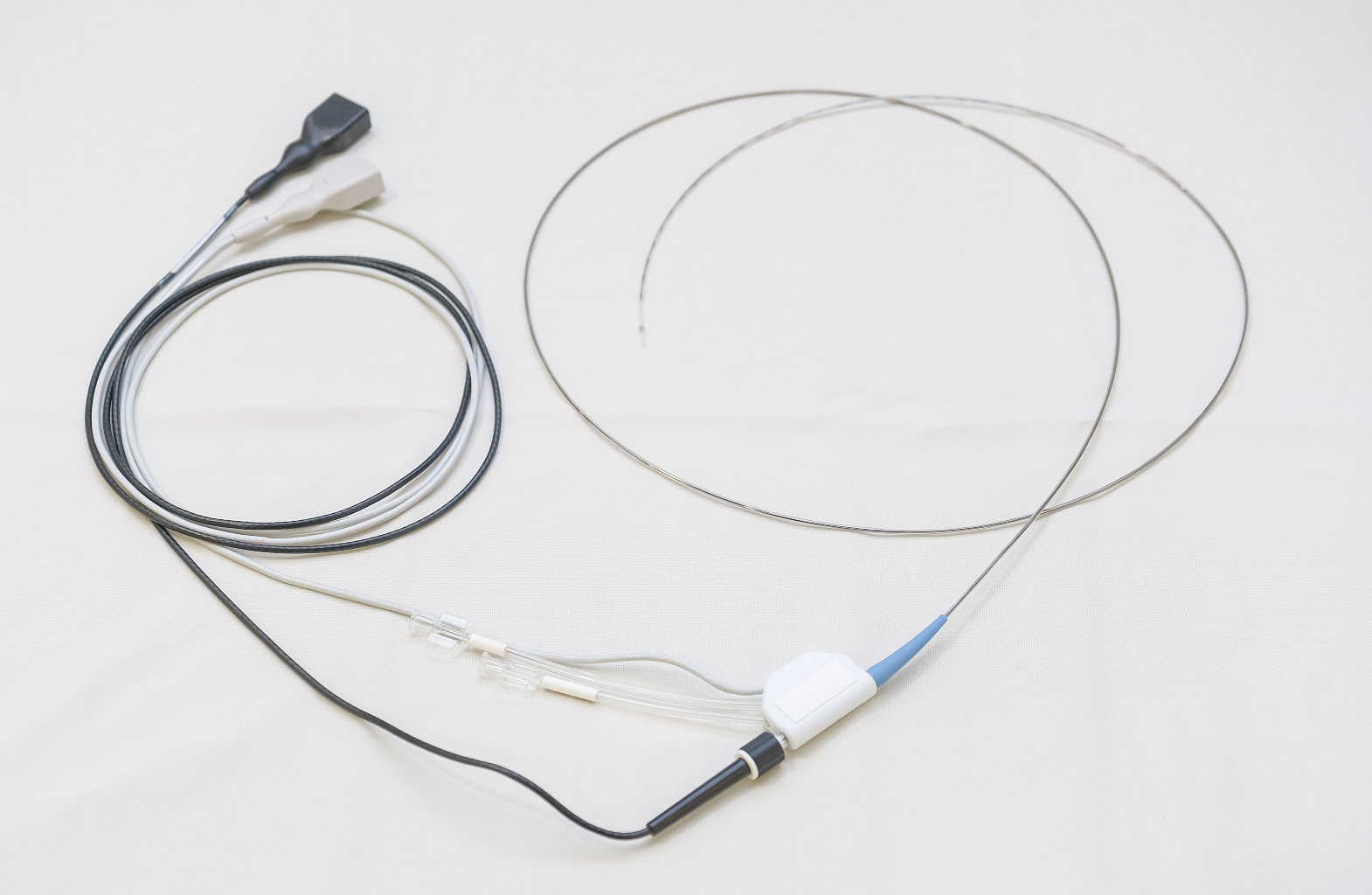New techniques to remove blood clot in lungs improve patient survival rate to more than 98%
Sign up now: Get ST's newsletters delivered to your inbox

(From left) Mr Mohamed Roslan bin Dawood, Ng Teng Fong General Hospital’s Director of Cardiology Pipin Kojodjojo, Cardiology and ICU Consultant Jimmy Ong and Ms Michelle Yip.
ST PHOTO: GAVIN FOO
Follow topic:
SINGAPORE - Patients in Singapore who have blood clots in the lungs can now undergo a virtually risk-free treatment that increases their survival rate to more than 98 per cent.
The condition is also known as pulmonary embolism, a lethal complication that develops in about one in four seriously ill Covid-19 patients.
In pulmonary embolism, blood clots lodge themselves in one of the arteries in the lungs, preventing blood from flowing into the lungs to pick up oxygen. This causes lower blood oxygen levels and cellular death in lungs.
Also, the heart, while attempting to clear the blockage, may overwork itself and go into arrest.
To resolve this, a new multi-disciplinary team of doctors in Singapore, known as the Pulmonary Embolism Response Team (Pert), has introduced two new minimally invasive techniques to remove these blood clots in patients with high risk, life-threatening cases of pulmonary embolism.
The first technique involves the insertion of a catheter into the artery and breaking down the clot via ultrasound, and the second technique similarly relies upon inserting a catheter but uses a suction force to pull the clot out of the body via vacuum.
The team is the first in Asia to use suction tools to treat pulmonary embolism, and is the first in South-east Asia to use ultrasound to breakdown blood clots in the lungs.
Previously, these blood clots would have been treated with blood thinning medication injected directly into the bloodstream. Patients would also have to serve an observatory period in the intensive care unit (ICU) of seven days or more, waiting for the clots to dissolve.
During this stay, one in eight patients would have developed further complications, such as brain bleeds, making the old method of treating pulmonary embolism (PE) risky and resource intensive.
Dr Pipin Kojodjojo, director of cardiology at Ng Teng Fong General Hospital and the leader of Pert, said: "In the old model of treatment for PE, we had to wait outside of the ICU helplessly, waiting either for the blood clot to dissolve or for the patient's condition to get worse.
"The introduction of these new techniques and emphasis on immediate results mark a philosophical shift in the way we treat patients with PE in Singapore."

The instrument used for suction thrombectomy.
ST PHOTO: GAVIN FOO
One of the first pulmonary embolism patients who benefited from such immediate treatment was Ms Michelle Yip, 40, an insurance executive who suddenly fainted while at work in October 2021, following a tight sensation in her calf and a sharp chest pain.
She was taken to the emergency department at Ng Teng Fong General Hospital, with her heartbeat racing and oxygen levels plunging. Subsequent tests revealed she was potentially on the verge of a cardiac arrest, with large blood clots in her lungs.
During those critical moments, she decided to undergo the hour-long procedure to have the clot removed by ultrasound.

Ms Yip, who was under only local anaesthesia during the procedure, said: "The process was virtually painless, and during the procedure itself, I felt instantly better."
The next day, she was discharged from the hospital and was able to resume her daily life - even though pulmonary embolism would ordinarily have a mortality rate of as high as 30 per cent if untreated.
Since April 2021, 12 other patients like Ms Yip have been treated in Singapore for pulmonary embolism using these two methods. All have fully recovered, with virtually no residual effects.
Dr Jimmy Ong, the consultant cardiologist in Pert who operated on Ms Yip, said: "It was remarkable having access to this technology - being able to immediately relieve the suffering of my patient on the operating table and know for certain they would recover."

